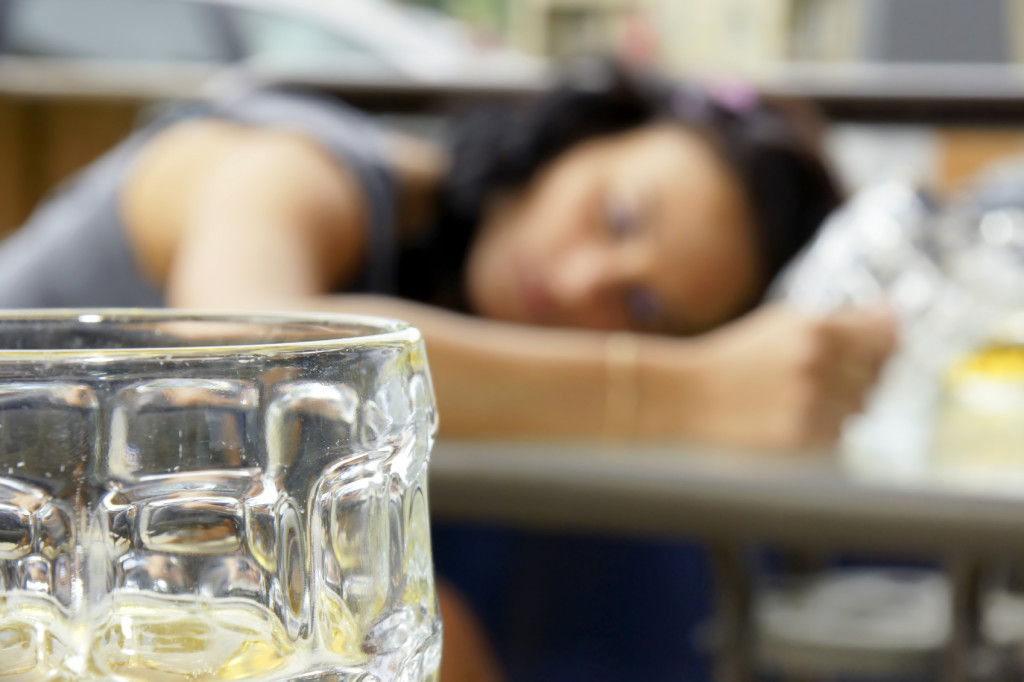In one US state, alcohol offenders must stay sober or face a day in the cells. It’s simple, cheap and effective
We have a drink problem in this country. In a fit of bourgeois Dordogne-villa, Barcelona-weekend madness Tony Blair took the cork out of the bottle and unleashed 24-hour drinking on a population that already had a big issue with alcohol-fuelled crime. His “café culture” is now a £20 billion violence-and-injury nightmare for the police and the health service.
Theresa May, the Home Secretary, seems, thankfully, about to try to put the vodka back in the bottle by tightening the licensing regime. But even if she succeeds, we will be left with a country where heavy alcohol consumption is common and drunks continue to offend.
At the same time, Kenneth Clarke, the Justice Secretary, is sensibly recognising that while prison may have a short-term effect on crime, it can be at the cost of creating much more deep-seated social problems. Yet prison inmates are largely young and inside for violence, drugs or booze and combinations thereof.
We have been here before. In the early 1980s Britain’s prison population was approximately 44,000, about half what it is today. The Home Secretary at the time, William Whitelaw, thought the number “dangerously high”. He was particularly concerned about a growing “yob culture” (sound familiar?).
His politically attractive answer to the problem was announced in the 1979 Conservative manifesto as a new, alliterative approach to penal policy — the short (cheap) sharp (penal) shock (tough). Politicians love policies that trip off the tongue but, like many, Whitelaw’s was a disaster.
Four centres were set up where young men were subjected to a military-style “boot camp”. The project was both expensive and ineffective, and had no impact on offending rates. In fact the centres’ main achievement was to turn out superfit young criminals who could easily outrun any pursuing copper.
Nonetheless, most practitioners in the crime game will tell you that Whitelaw’s instincts were right. For punishment to be effective in deterring crime and changing behaviour, it must be swift, certain and corrective.
Now there isn’t much that we can learn about penal policy from our American cousins, but in a sleepy corner of South Dakota, a quiet revolution has taken place that might give us the answer to the problem of booze and the violence to which it often leads.
Twenty years ago Larry Long, the chief prosecutor of Bennett County, South Dakota, had a problem not dissimilar to our own — a population with little work and a terrible drink habit. Bordered on three sides by Native American reservations, with a density of only three people per square mile, it seemed that there was little else to do apart from drinking, driving and beating each other up. He found himself locking up the same people again and again, with little effect. Things had to change. The county needed a system that was tough, cheaper than incarceration, and that would actually change behaviour.
So instead of asking his local judge to lock people up, Long requested something more imaginative. People convicted of drink-driving and domestic violence were required to attend their local police station twice a day to be tested for alcohol consumption. Effectively their permanent sobriety was both punishment and cure, and Long was willing to undertake intensive monitoring and enforcement to ensure compliance.
If offenders passed the daily tests they remained free. If they failed they were marched across the hall straight into a jail cell for 24 hours. No-shows were tracked down and subjected to the same treatment. On release the next day, the testing regime would resume. Crucially the sanction was immediate and certain — straight into the cells, no argument, no court, no lawyers. And to cap it all, offenders were compelled to pay for their own testing rather than being fined. As well as keeping enforcement costs down, this was the money that they would otherwise have spent on hooch.
The results were startling. Something happened in the minds of hardened alcoholics when they were focused twice a day on the choice between booze and freedom. In more than 90 per cent of cases they chose freedom. Drink-driving rates fell drastically. Abused wives were left in peace. And there were other benefits: offenders were able to maintain employment and stay among their families. Driving on the county roads became less of a game of Russian roulette. But crucially — and to the eternal gratitude of the taxpayer — the prison population fell as hardcore repeat offenders stayed on the wagon.
News of the scheme spread. In 2004 the state governor noticed, and three further counties designated as pilots achieved similarly impressive results. In 2007 the state legislature unanimously approved the project for state-wide use and extended it to other offences, including drug-testing and as a condition of children staying in problem homes. Parole boards were allowed to impose testing as a condition of early release from prison.
The figures speak for themselves. Since 2005 nearly 16,000 people have been placed on the programme and been tested 3.1 million times. The pass rate is 99.3 per cent. Jail populations have fallen across the state, in the two largest counties by more than 100 people a day, saving millions. And let’s not forget that the project is largely self-financing, as offenders have to pay for their own testing.
In the UK a similar scheme would be relatively easy to establish, given our policing structure. In London, for instance, we have safer neighbourhood policing teams covering the entire capital. The twice-daily testing regime could form part of their offender-management duties. With a plethora of custody suites and prisons across the city, swift and certain incarceration could be achieved. I know that police would much rather spend their time preventing offending during the day than arresting violent young men at night.
Given that the new Government wants to cut policing and prison costs, and at the same time tackle alcohol-related crime, insisting on self-financing, compulsory sobriety from offenders may be the only path to a vomit and blood-free high street on a Sunday morning.

